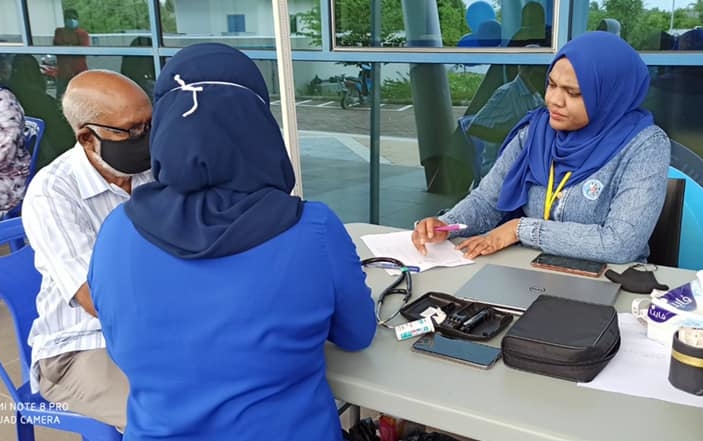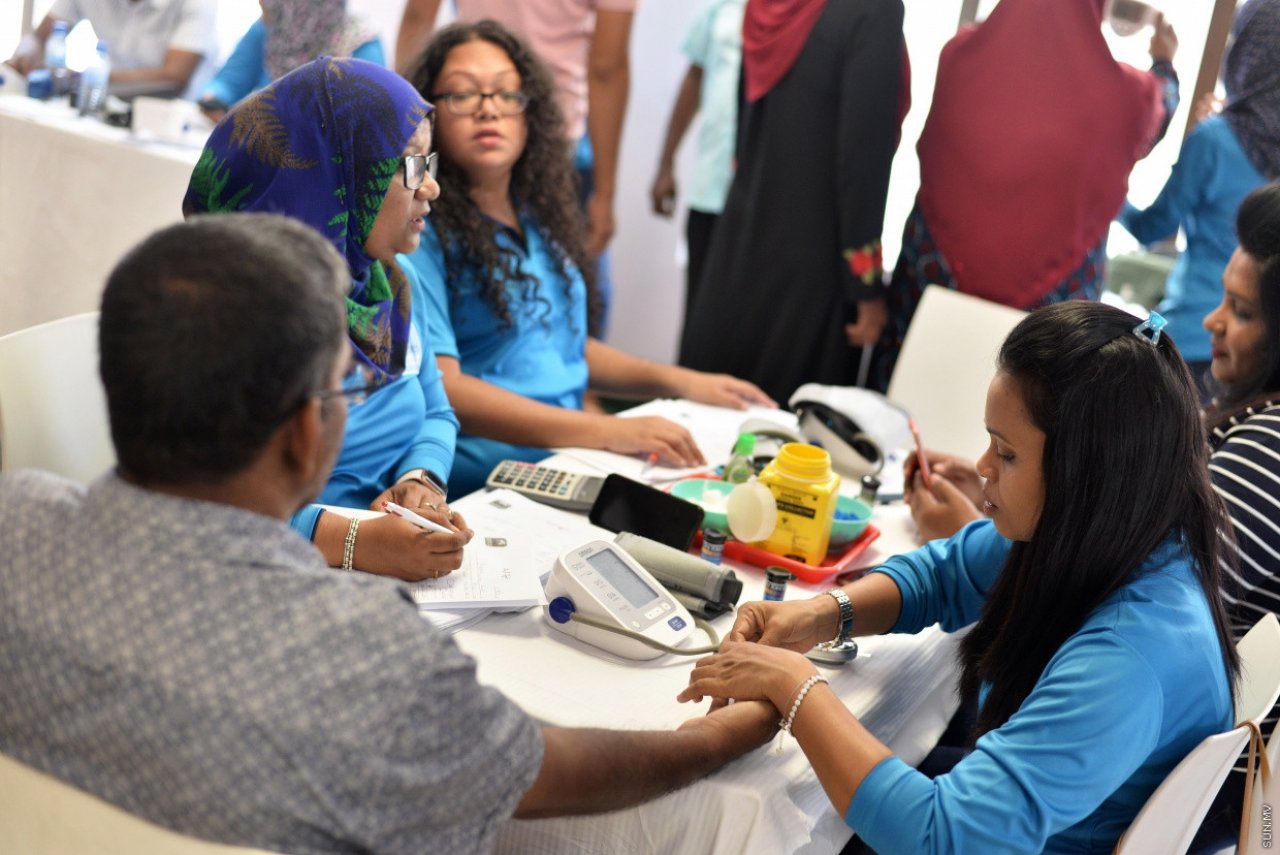Every year, November 14 marks the World Diabetes Day with healthcare facilities conducting numerous awareness sessions and handing out pamphlets to raise awareness on the issue.
The race to reduce the percentage of the population living with diabetes has been a rather challenging and a difficult one even for the small country of Maldives. The disease puts an enormous burden on the healthcare sector with millions being spent for treatment of the disease and it’s complications. Hence, early detection and proper care are needed urgently to reduce the burden on the system and improve the livelihoods of the public.
A touch of sugar
Diabetes is one of those diseases that are so widely spoken about that almost everyone knows some information on it. This goes to show the efforts made by the public health sectors and others to educate the public. However, it is vital To ensure that the information gained is always correct, adequate and up to date.
Diabetes is a condition associated with abnormally high levels of sugar (glucose) in the blood. The hormone Insulin produced by the pancreas helps in lowering blood glucose. When the pancreas produces less or no insulin or when the body becomes unable to properly use the insulin which is produced, blood sugar levels increases. There are two types of diabetes referred to as Type One and Type Two.
Who is at risk?
The risk factors for Type One diabetes are not well understood and have a genetic component to it. Likewise, Type Two diabetes is also known to run in families. If you have anyone in your family with diabetes, your risks of having diabetes increases as well. In addition to that, being overweight or obese, having high blood pressure, having high cholestrol levels, lack of exercise and poor nutrition are well known risk factors of diabetes as well.
How would I know if I have diabetes?
Many people are unaware that they have diabetes, especially in its early stages when symptoms may not be present. There is no definite way to know if you have diabetes without undergoing blood tests to determine your blood glucose levels.

When the disease has progressed further, symptoms such as increased thirst, increased appetite, increased frequency and amount of urination, headaches, tiredness, blurred vision or even numbness over the foot can be experienced. As this is the case, careful watch out for the symptoms are advised and early detection is highly emphasized by the healthcare practitioners.
How is diabetes treated?
When high blood sugar levels are caught early through screening or through a routine blood investigation for any other illnesses, the treatment can be done by lifestyle changes. The most important fact about the risk factors is that most of these risk factors are modifiable. Hence, the trend of starting with lifestyle modifications before the start of medications are widely accepted around the world.
However, this is only applicable if the blood sugar levels are not exceedingly high. Also, this decision of whether to start medication or to go with lifestyle modification ultimately is made by the doctor along with the patient based on the patient’s needs and capabilities. Lifestyle modification includes regular exercise, balanced diet and control of sugar, salt intake and controlling other associated conditions like hypertension and high cholesterol.
If the blood sugar levels are found to be too high medication should be started immediately as uncontrolled diabetes comes with numerous severe complications.
What happens if diabetes goes untreated?
The small vessels: Eyes, Kidneys, and Nerve
Small blood vessels in the body can be damaged by consistently high blood glucose over time. Damaged blood vessels don’t deliver blood as well as they should, which leads to other problems, specifically with the eyes, kidneys, and nerves.
Eyes: Blood glucose levels out of range for a long period of time can cause cataracts and/or retinopathy in the eyes. Both can cause loss of vision.
To avoid eye problems associated with diabetes, it is advised to keep your blood glucose within range and have yearly eye check-ups that include a dilated eye examination with an eye doctor to monitor your eye health.
Nerves: Nerve damage caused by diabetes is also known as diabetic neuropathy. The tiny blood vessels “feed” your nerves, so if the blood vessels are damaged, then the nerves will eventually be damaged as well. The problem with nerve damage is that, when the patient has a small cut, or any injury to their feet they do not feel the pain and hence it goes unnoticed.
This leads to infection and eventually diabetic foot ulcers develop. This can lead to uncontrolled infection and severe damage that the toes or even the leg might need to be cut off. Unfortunately, this is still a very common scene in many of the patient’s with poorly controlled diabetes.
Kidneys: If untreated, kidney disease,also called diabetic nephropathy damages the kidney and most people would ultimately need dialysis and/or kidney transplant. Uncontrolled (or poorly controlled) diabetes can cause the kidneys to fail; they’ll be unable to clean the blood properly.
The large Vessels:The Heart, Brain, and Blood Vessels
Type 2 diabetes can also affect the large blood vessels, causing plaque to eventually build up in the vessels and leading to a heart attack, stroke or vessel blockage in the legs (peripheral vascular disease).
What can be done?
To prevent heart disease and stroke resulted by diabetes, blood sugar should be kept under control. In addition to this, regular medical check ups should be done to check blood sugar levels, blood pressure, cholesterol levels, kidney function and also eye check ups should be made a part of these annual check ups.
Diabetes mellitus is without doubt a silent killer as it affects all the major organs and it slowly but surely worsens the function of these organs. Therefore, adapting to a healthy lifestyle with regular exercise, balanced diet and regular health check ups would most definitely help in decreasing the percentage of the population with diabetes,





